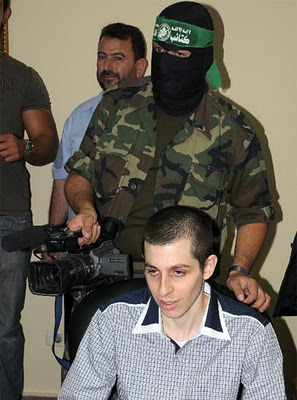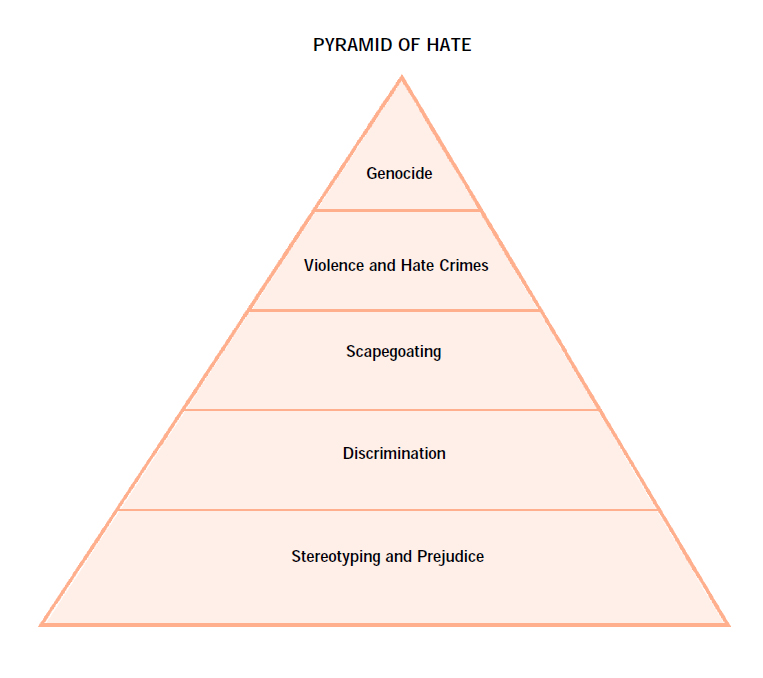Recent Entries:
Month: October 2011
October 23, 2011
Ha’aretz Lost in Translation, IX
In the wake of the Shalit prisoner release, Ha’aretz‘s Lost in Translation malady has struck again. An Oct. 19 article on earlier prisoner exchanges makes clear in Hebrew that the released Palestinian prisoners from the Shalit deal are from the most infamous terror attacks, well-known to Israelis (CAMERA’s translation):
The names of the 1,233 prisoners released in recent years mean little to most Israelis. But the prisoners from the Shalit deal are known to the public according the names of the attacks in which they participated: Sbarro, Dolphinarium, Park Hotel, Moment Cafe, and more, among the most severe attacks ever in Israel, and that is the difference [between this release and earlier releases]. (Emphasis added.)
But the English translation of this article, read mostly by foreigners — journalists, diplomats, and policymakers, among them — reads the exact opposite. Incredibly, contrary to the Hebrew original, it states that the released Palestinian prisoners from the Shalit deal are unknown to Israelis. The English reads:
The names of most of the prisoners freed since July 2007 mean little to most Israelis, as do the names of the prisoners freed on Tuesday.
October 21, 2011
Anti-Shalit Screed on Fatah-Affiliated Web Site
The images of the newly released Gilad Shalit, malnourished, weak and pale, clearly having suffered deprivation during his five years of imprisonment, stirred sympathetic reporting in many media outlets.
But MEMRI notes that an article on a Fatah-Affiliated Website by journalist Sami Foda, charges:
“[Gilad Shalit is] a young man who spent his time in bars and brothels, playing games and pampering himself. He enjoyed the pleasures of a land not his own. He went around robbing, stealing, torching, raping, trampling, and desecrating the soil of this land that is not his own. He viciously strove to shed the blood of the martyrs, killed innocent people, shelled the homes of innocent people with tanks, destroying them without shame, mercy, or pangs of conscience, a stupid murderer who did not mind killing our elderly, our men, our youth, and our women, and even our poor children, [so] pure and innocent.
Will commentators quick to urge that Israel make concessions to the Fatah-dominated Palestinian Authority report on and deplore the screed?
October 21, 2011
UN Spews More Bias
The other day we pointed out just what a sad joke the UN has become, with its overt, anti-Israel bias and twisting of the truth regarding the Arab-Israeli conflict. Now, the unhinged UN Special Rapporteur to the Palestinian Territories Richard Falk, notorious for the anti-Semitic imagery on his blog posts and anti-American conspiracy theories, is at it again, spewing more bias and distorting the facts to twist the roles in the Israeli-Palestinian conflict.
Perhaps to take the spotlight off the increasingly militant proclamations of the Palestinians — like those who are calling for kidnapping another Gilad Shalit, or for those who incite Gaza schoolchildren to become martyrs and who vow to continue to carry out terrorist attacks– Falk has twisted the story to paint the victims as Palestinian children and the villains as Israeli settlers.
Prolonged occupation deforms the development of children through pervasive deprivations affecting health, education, and overall security,” UN Special Rapporteur to the Palestinian Territories Richard Falk said in a statement to a General Assembly committee. “The insecurity of Palestinian children is aggravated in the West Bank, including east Jerusalem by settler violence and night time raids and detentions by Israeli occupation forces, house demolitions, threatened expulsions, and a host of other practices,” he added.
There have already been calls for Falk’s resignation. But even if he did take a break from his anti-Israel agenda, the UN is filled with way too many like him.
October 21, 2011
Released Prisoner Profile: Wafa Bis
Wafa al-Bis is still hoping to fulfill her childhood dream of becoming a shahid (martyr) by killing as many Israelis as she can.
She tried 6 years ago, in June 2005, while on her way to Soroka Hospital in Beersheva from Jabaliya. Bis was undergoing treatments by Israeli doctors on humanitarian grounds for disfiguring burns she had sustained in a cooking accident.
Did she appreciate the kindness and consideration she was shown at the Israeli hospital? On the contrary, she wanted to blow up as many Israelis as possible and what better place than at a hospital, where the bedridden make ideal, sitting targets? Not much likelihood they could escape.
Laden with 10 kg. of explosives sewn into her underwear, she came waddling through a checkpoint only to be stopped by Israeli soldiers suspicious of her unusual gait. She tried to detonate the explosives then and there, but a malfunction occurred and she was arrested instead. She later explained :
My dream was to be a martyr. I believe in death. I wanted to blow myself up in a hospital, maybe even in the one in which I was treated. But since lots of Arabs come to be treated there, I decided I would go to another, maybe the Tel Hashomer, near Tel Aviv. I wanted to kill 20, 50 Jews …even babies…”
Flash forward 6 years: After serving half of a 12-year term in an Israeli prison, she was one of the 477 Palestinians released as the first part of a prisoner deal to free Israeli soldier Gilead Shalit. Greeted by dozens of cheering Palestinian schoolchildren in Gaza, she incited them to become suicide bombers:
I hope you will walk the same path we took and God willing, we will see some of you as martyrs.
She plans to disregard Israel’s warning about returning to terrorism. She says:
We will pursue our struggle and (Israeli Prime Minister Benjamin Netanyahu) knows that. Arrests will not deter us from our strong battles and confrontation in the face of Zionist arrogance in the land of Palestine.
October 20, 2011
Palestinian Prime Minister Admits What New York Times Won’t
Unlike the New York Times editorial board, which blames only Israel for the lack of peace talks even though the country has repeatedly urged Palestinian leaders to restart talks, the Palestinian Prime Minister is at least willing to admit that his side has some responsibility in the matter.
“My own assessment is that conditions are not ripe, at this juncture, for a meaningful resumption of talks,” Fayyad told a black-tie dinner hosted by the American Task Force on Palestine.
“All it is likely to produce under current conditions is defensiveness on the part of the parties … leading to a positioning game … to try to establish a position where it is the other’ party’s fault,” he added.
Will the Times, which increasingly seems to pick its Mideast stories based on how closely they hew to the editorial board’s political positions, cover Fayyad’s statement?
October 20, 2011
An Answer to Jeffrey Goldberg’s Question
Since Snapshots is in the question-answering mood — see our most recent post, “An Answer to the New York Times’ Question” — let’s take a stab at a question posed by Jeffrey Goldberg on his blog today.
Responding to a stunningly surreal article on the Guardian website about the Gilad Shalit prisoner exchange, Goldberg asks the Guardian: “Shouldn’t your editors do a better job of masking prejudice on your website?”
The piece he’s talking about, by Deborah Orr, slams Netanyahu, and Israel, and Zionists, and implicitly Jews, for trading over a thousand prisoners for Gilad Shalit. Why? Because, Orr argues, it is evidence that those guilty parties believe the “obscene idea that Israeli lives are more important than Palestinian lives.” Later in the piece, she substitutes “the lives of the chosen” for her earlier reference to “Israeli lives.”
Hamas’s hard-line negotiating position is proof of “Zionist” racism? What can one really say about an idea so obviously shaped by blind hatred rather than rationality? It is, in Goldberg’s words, “almost-comical nastiness.”
So turning back to his question: Shouldn’t Guardian editors do a better job at masking prejudice?
No. The Zeitgeist that produces Orr’s piece is the same one that colors the newspaper’s distorted treatment of Israel in general, and its better for people know it.
Modern haters tend to realize that masked prejudice has more power to influence than the unmasked variety. And if an observer tries to remove the mask, or even just tries to rebut a hateful slur, they’re frequently attacked for “using the anti-Semitism card.” Better, then, for the hater to remove his or her own mask. If Guardian editors want to make their anti-Israel bigotry more apparent, let them. Hopefully the reasonable public will take note.
October 19, 2011
An Answer to the New York Times’ Question
Never ones to miss an opportunity to attack Israel, the New York Times editorial board took advantage of Gilad Shalit’s release to yet again slam the country in an editorial today.
In it, the writer poses the following question:
One has to ask: If Mr. Netanyahu can negotiate with Hamas — which shoots rockets at Israel, refuses to recognize Israel’s existence and, on Tuesday, vowed to take even more hostages — why won’t he negotiate seriously with the Palestinian Authority, which Israel relies on to help keep the peace in the West Bank?
The answer is quite simple. Israel hasn’t engaged in serious negotiations with the Palestinians because Mahmoud Abbas has refused to participate in such negotiations, disregarding a chorus of world leaders who have urged him to talk peace. Abbas has blocked talks with preconditions that even his violent predecessor, Yasir Arafat, didn’t insist on.
October 19, 2011
UN Shows Its Bias Again, on Shalit Prisoner Exchange
Gilad Shalit, the Israeli soldier who was kidnapped and held in isolation for five years by Hamas terrorists, was finally released in exchange for over 1000 brutal terrorists, many of whom are guilty of the most barbaric slaughter of Israelis. The young captive arrived in Egypt, gaunt, pale and nervous, but before being released to his nation and family, the Egyptian intermediaries and terrorist captors subjected him to yet more stress, barraging him with questions in a television interview as masked Hamas terrorists stood by. Gilad was obviously uncomfortable, struggling for breath as he must have feared that one wrong answer could undermine the entire deal and land him back with his cruel captors.
Did this concern UN representatives? Unsurprisingly not. The only concern voiced was that some Palestinian terrorists who were released in the prisoner exchange may have been deprived of their rights by not having been given a choice on where to go. Navi Pillay, UN High Commissioner for Human Rights, made that clear.
“It was with a sense of great relief that we have received news of the agreement to exchange prisoners. We do however have concerns regarding reports that hundreds of Palestinian prisoners from the West Bank may be released to the Gaza Strip or abroad,” Pillay’s spokesman Rupert Colville told Reuters in response to a query.
“If in some cases this has been without the free and informed consent of the concerned individuals, this may constitute forced transfer or deportation under international law,” he added. “We are not sure to what extent they consented to this.”
Considering the barbaric crimes for which these terrorists had been incarcerated, their complete lack of repetance, and the Palestinian reception of the prisoners, which include calls for kidnapping “a new Gilad Shalit” and shouts of “Khaybar, Khaybar ya Yahud” (invoked as a reference the ethnic cleansing of Jews by Islamists), the concern of the UN human rights council is truly ludicrous and twisted, raising questions about the council’s true goals and motives. Clearly, there is no concern about the human rights or well-being of Israeli victims and captives. The concern is limited to the terrorists’ rights. The right to recidivism? Ensurance that the terrorists have full freedom to return to their previous comfortable and familiar bases of operation? Ensuring that the terrorists’ ability to attack Israelis remains unimpeded?
No wonder the UN and its so-called “human rights council” has lost any relevancy and has become such a hideous joke.
October 18, 2011
Egypt Ascends the Pyramid of Hate
Take a look at the image above.
It’s a “Pyramid of Hate” used to educate middle school students in the United States about the process of demonization that precedes mass killings. The image is part of an anti-hate curriculum created by “Partners Against Hate” or PAH for short.
PAH is an initiative funded by the U.S. Department of Justice and supported by a number of organizations including the Anti-Defamation League, the Center for the Prevention of Hate Violence, the Legal Conference on Civil Rights Education Fund. PAH charged with reducing hate crimes in the U.S. The goal of lesson plan in which this pyramid appears is to “examine the escalating nature of hate and to consider the difficulty of stopping the progression once it begins.”
The pyramid describes in a graphic way, the process by which societies fall prey to the impulse to engage in acts of mass violence against minorities.
At the bottom of the triangle, we see preexisting hostility toward the target population. On the next level, we see discrimination and above that, we see scapegoating. Above that are violence and hate crimes, and at the very top we see genocide.
Also included in the lesson plan are questions designed to elicit discussion from the students. One of the questions asks “What are some factors that make it more likely that hate will escalate? (e.g., hate behaviors are tolerated, the media reinforces stereotypes, friends and family agree with and reinforce each other’s prejudices)”.
Looking at this pyramid in light of what has happened in Egypt in the past few months is, or at least, should be, a deeply disconcerting experience, in part because it highlights just how vulnerable Egypt’s Coptic Christians are to further acts of violence. While its unlikely that Egypt’s Copt’s will endure a full-scale genocide like the one endured by Jews in Europe, it’s entirely reasonable to conclude that we will see ethnic cleansing of Christians in Egypt on a mass scale in Egypt, just as we have in Iraq.
(more…)October 17, 2011
Khalidi Lobs Another Canard into the Echo Chamber
When Columbia professor Rashid Khalidi repeatedly promoted a hoax quote meant to impugn Israel, he left some of the world’s largest newspapers holding the bag. The New York Times, LA Times and others eventually published corrections to the falsehood Khalidi had them print.
Fact checkers hoping to avoid a repeat might want to check out Martin Kramer’s incisive deconstruction of the professor’s latest misinformation campaign.
Khalidi, it seems, has taken to claiming that a man named Edward Gottlieb, “one of the founders of the modern public relations industry” and “the father of the American iteration of Zionism,” commissioned Leon Uris to write his famous novel Exodus in order to positively advertise Israel.
After investigating, Kramer concluded:
In sum, the Gottlieb “commission” never happened. Uris’s biographers dismiss it, Gottlieb’s most knowledgeable associate denies it, and no documents in Uris’s papers or Israeli archives testify to it. It originated as a boast by Gottlieb to another PR man, made almost thirty years after the (non-)fact. And given its origin, it’s precisely the sort of story a serious professional historian would never repeat as fact without first vetting it (as I did).
Yet it persists in the echo chamber of anti-Israel literature, where it has been copied over and over.
Search:
Search this site:










